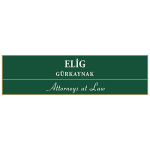1. REGULATORY FRAMEWORK
1.1. What is the applicable legislation and who enforces it?
Law No. 4054 on Protection of Competition is the primary legislation. Communiqué 2010/4 on Mergers and Acquisitions Requiring the Approval of the Competition Board is the secondary legislation. The Competition Authority (Authority) is the enforcement authority and the Competition Board (Board) is the decision-making body.
2. JURISDICTIONAL TEST
2.1. What types of mergers and joint ventures (JVs) are caught?

A merger of two or more undertakings; or an acquisition of control by an entity or a person of another undertaking's assets or a part or all of its shares or instruments granting the management rights are notifiable, if they result in a permanent change of control. Join ventures (JVs) are deemed as acquisitions.
2.2. What are the thresholds for notification, how clear are they, and are there circumstances in which the authorities may investigate a merger falling outside such thresholds?

A transaction is subject to the Board's approval if the aggregate Turkish turnover of the parties exceeds TRY100 million ($37 million) and the Turkish turnover of at least two of the parties each exceeds TRY30 million. The Board's approval is also needed in acquisition transactions where the Turkish turnover of the transferred assets or acquired businesses exceeds TRY30 million and the worldwide turnover of at least one of the other parties exceeds TRY500 million. In merger transactions, the Board needs to approve transactions where the Turkish turnover of any of the parties in the merger exceeds TRY30 million and the worldwide turnover of at least one of the other parties exceeds TRY500 million.
2.3. Are there circumstances in which a foreign-to-foreign merger may require notification, and is a local effect required to give the authority jurisdiction?

Foreign-to-foreign mergers exceeding the thresholds require notification.
3. PRE-NOTIFICATION AND FILING
3.1. Is filing mandatory or voluntary and must closing be suspended pending clearance? Are there any sanctions for non-compliance, and are these applied in practice?

Filing is mandatory once the parties' turnovers exceed the thresholds. The existence of an affected market is not sought in assessing whether a transaction triggers a notification requirement.
If the parties violate the suspension requirement or do not notify the transaction, the Board imposes a turnover-based monetary fine. The minimum fine in 2016 was TRY 17,700.
If there is a risk that the transaction might be viewed as problematic under the dominance test and the transaction is closed before clearance, the Authority may launch an investigation. It may order structural or behavioral remedies to restore the situation as to before closing, and impose a fine up to 10% of the parties' annual turnover. Executive members who have a significant role in the infringement may also receive monetary fines of up to five percent of the fine imposed on the undertakings.
A notifiable concentration is invalid with all its legal consequences, unless and until it is approved by the Board.
3.2. Who is responsible for filing and what, if any filing fee applies?

The filing can be made jointly or solely. There is no filing fee.
3.3. What are the filing requirements and how onerous are these?

The notification form is similar to the European Commission's Form CO. Certain additional documents are also required (such as the transaction documents and their sworn Turkish translations and annual reports.)
3.4. Are pre-notification contacts available, encouraged or required? How long does this process take and what steps does it involve?

The Turkish merger control rules do not provide a pre-notification mechanism (for instance there is no submission of a draft notification form).
4. CLEARANCE
4.1. What is the standard timetable for clearance and is there a fast-track process? Can the authority extend or delay this process?

Upon its preliminary review of the notification the Board decides either to approve or to investigate the transaction further (phase 2). There is an implied approval mechanism where a tacit approval is deemed if the Board does not react within 30 calendar days upon a complete filing. If the information requested in the notification form is incorrect or incomplete, the notification is deemed filed only on the date when this information is completed upon the Board's request for data. A phase 2 review takes about six months and may be extended only for an additional period of up to six months.
4.2. What is the substantive test for clearance, and to what extent does the authority consider efficiencies arguments or non-competition factors such as industrial policy or the public interest in reaching its decisions?

The substantive test for clearance is the dominance test. Efficiencies may play a more important role in cases where the combined market shares of the parties exceeds 20% for horizontal overlaps and the market share of either of the parties exceeds 25% for vertical overlaps. The Board may consider efficiencies to the extent they operate as a beneficial factor in terms of better-quality production or cost-savings.
4.3. Are remedies available to alleviate competition concerns? Please comment on the authority's approach to acceptance and implementation of remedies.

The parties can provide commitments to remedy substantive competition law issues of a concentration. It is at the parties' own discretion whether to submit a remedy. The Board will neither impose any remedies nor ex-parte change the submitted remedy. In the event the Board considers the submitted remedies insufficient, the Board may enable the parties to make further changes on the remedies. If the remedy is still insufficient to resolve the competition problems, the Board may not grant clearance.
5. RIGHTS OF APPEAL
5.1. Please describe the parties' ability to appeal merger control decisions – how successful have such challenges been?

The Board's sanction decisions can be appealed before the administrative courts in Ankara. Appeal in merger control decisions is rare.
6. YOUR JURSIDICTION
6.1. Outline any merger control regulatory trends in your jurisdiction.
The number of cases in which the Board took the transaction into phase 2 review or decided on commitments, and especially structural or behavioral remedies, has significantly increased. This shows that in the case of potentially problematic transactions, Turkish merger control enforcement is more eager to take the transaction into a deeper scrutiny and seek commitments. In Migros/Anadolu Endüstri, (July 9 2015, 15-29/420-117) regarding the acquisition of sole control over Migros Ticaret (Migros) by Anadolu Endüstri Holding (AEH), to eliminate the Board's concerns with respect to the transaction's effect in the market for beer, AEH submitted a number of behavioural commitments for a period of three years. Consequently, the Board granted conditional approval to the transaction. This decision is particularly important for containing detailed analyses on the competitive concerns that could occur in non-horizontal concentrations.
Furthermore, in ABI/SABMiller (June 6 2016, 16-19/311-140), regarding Anheuser-Busch InBev's (ABI) acquisition of SABMiller plc (SABMiller) the Board took the transaction into phase 2 review, deeming that the transaction would lead to competitive concerns in the beer market as ABI was also indirectly acquiring a minority interest in Anadolu Efes (dominant in the beer market in Turkey). The decision is pertinent as it involved major global and local beer manufacturing companies and it passed without any remedies after a brief phase 2 review.
About the author |
||

|
|
Gönenç Gürkaynak Founding partner, ELIG Gürkaynak Attorneys-at-Law Istanbul, Turkey T: +90 212 327 1724 W: www.elig.com Mr. Gönenç Gürkaynak is a founding partner of ELIG Gürkaynak Attorneys-at-Law, a leading law firm of 87 lawyers in Istanbul, Turkey. Mr. Gürkaynak graduated from Ankara University, Faculty of Law in 1997, and was called to the Istanbul Bar in 1998. Mr. Gürkaynak received his LL.M. degree from Harvard Law School, and is qualified to practice in Istanbul, New York, Brussels and England and Wales (currently a non-practising Solicitor). Before founding ELIG Gürkaynak Attorneys-at-Law in 2005, Mr. Gürkaynak worked as an attorney at the Istanbul, New York and Brussels offices of a global law firm for more than eight years. Mr. Gürkaynak heads the competition law and regulatory department of ELIG Gürkaynak Attorneys-at-Law, which currently consists of 45 lawyers. He has unparalleled experience in Turkish competition law counselling issues with more than 20 years of competition law experience, starting with the establishment of the Turkish Competition Authority. Mr. Gürkaynak frequently speaks at conferences and symposia on competition law matters. He has published more than 150 articles in English and Turkish by various international and local publishers. Mr. Gürkaynak also holds teaching positions at undergraduate and graduate levels at two universities, and gives lectures in other universities in Turkey. |
About the author |
||

|
|
Öznur İnanılır Partner, ELIG Gürkaynak Attorneys-at-Law Istanbul, Turkey T: +90 212 327 1724 W: www.elig.com Ms. Öznur İnanılır joined ELIG Gürkaynak Attorneys-at-Law in 2008. She graduated from Başkent University, Faculty of Law in 2005 and following her practice at a reputable law firm in Ankara, she obtained her LL.M. degree in European Law from London Metropolitan University in 2008. She is a member of the Istanbul Bar. Ms. Öznur İnanılır became a partner within the competition law and regulatory department in 2016 and has extensive experience in all areas of competition law, in particular, compliance to competition law rules, defenses in investigations alleging restrictive agreements, abuse of dominance cases and complex merger control matters. She has represented various multinational and national companies before the Turkish Competition Authority. Ms. İnanılır has authored and co-authored articles published internationally and locally in English and Turkish pertaining to her practice areas. |


